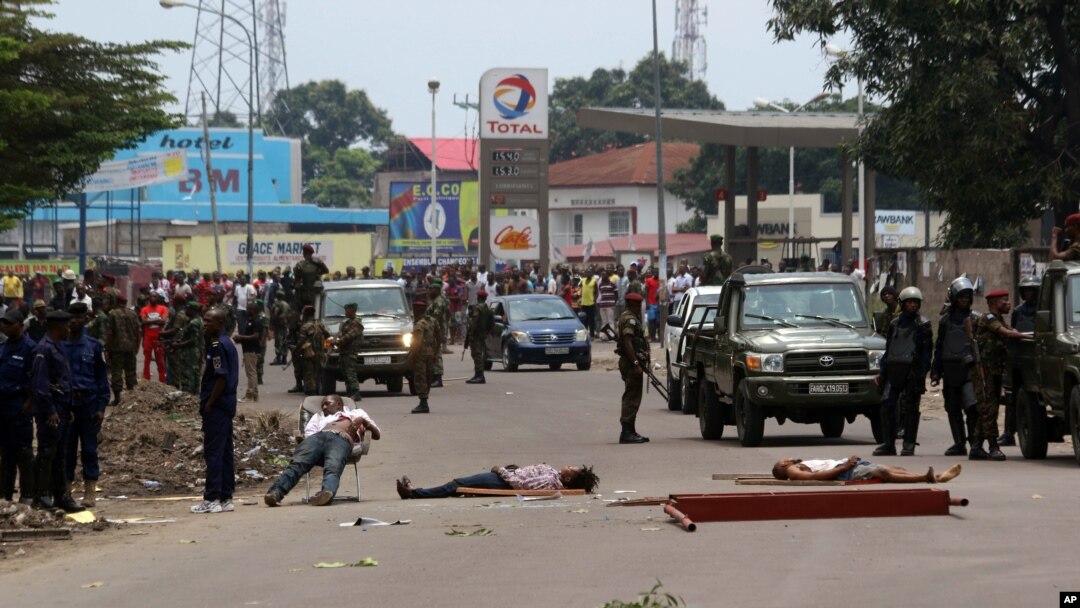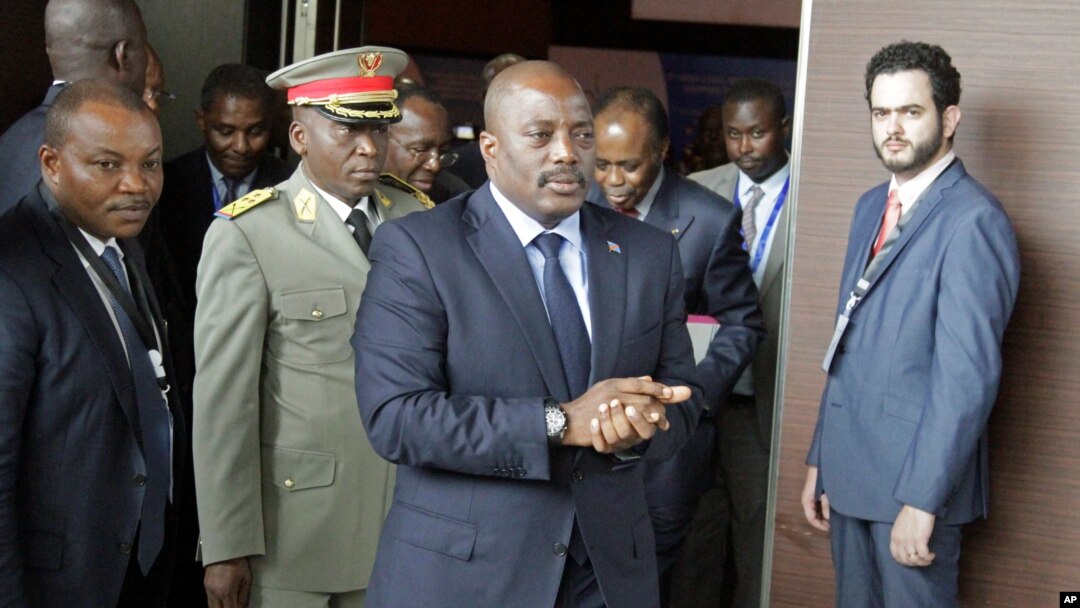Central African heads of state meeting Wednesday in Luanda, Angola, endorsed the deal signed last week in the Democratic Republic of Congo that delays that country's elections by nearly two years. But the regional stamp of approval has not diminished tensions in the country itself.
The African Union-mediated agreement pushes elections in the DRC from next month to April 2018. President Joseph Kabila will stay on until then at the head of a new power-sharing government, though his elected mandate expires in December.
Angola’s president, Jose Eduardo dos Santos, himself in power since 1979, said Wednesday the accord will help “put an end to the climate of contestation and destabilization.”
Violent protests over the delayed elections killed more than 50 people in September, according to rights groups and the United Nations.
The regional summit’s closing statement congratulated Kabila for convening what was billed as the “national dialogue” that produced the agreement. Dos Santos urged those in the DRC who did not participate in negotiations to sign up to the deal.
Not all on board
However, that does not appear likely. The endorsement of regional leaders has done little to dampen the anger the agreement has aroused among Kabila’s opponents. The country’s main opposition coalition, known as the Rassemblement, or the Assembly, boycotted national dialogue talks.
Franck Diongo, a leading Rassemblement figure, told VOA the African Union and the regional blocs are showing a negative solidarity. He said the Luanda summit was a syndicate of dictators who feel a need to stick together. But he added that the Congolese people will have the last word.

FILE - Bodies of people killed during election protests lie in the street as Congolese troops stand by in Kinshasa, Democratic Republic of Congo, Sept. 19, 2016. More than 50 people died during protests in September, according to rights groups and the United Nations.
The Rassemblement has called for a public meeting November 5 in which Diongo said veteran opposition leader Etienne Tshisekedi will lay out their plan of action.
La Lucha, a prominent civil society group, has also denounced the agreement and the role of the African Union, which it accused of displaying “arrogance, disdain and condescension” during the negotiations.
Activists arrested
In the eastern city of Goma, at least 17 members of La Lucha were arrested this week while protesting the accord. In Kinshasa, authorities banned a sit-in in front of AU headquarters.
Under the DRC’s constitution, Kabila is not eligible to stand in the next elections, having served his two-term limit.
The Congo Research Group, part of New York University, polled nearly 8,000 people nationwide and found that less than eight percent of Congolese would vote for Kabila if an election were held this year.
The survey also found that more than 80 percent of respondents oppose a constitutional revision to allow Kabila to run for a third term and 74 percent say he should step down this year.


